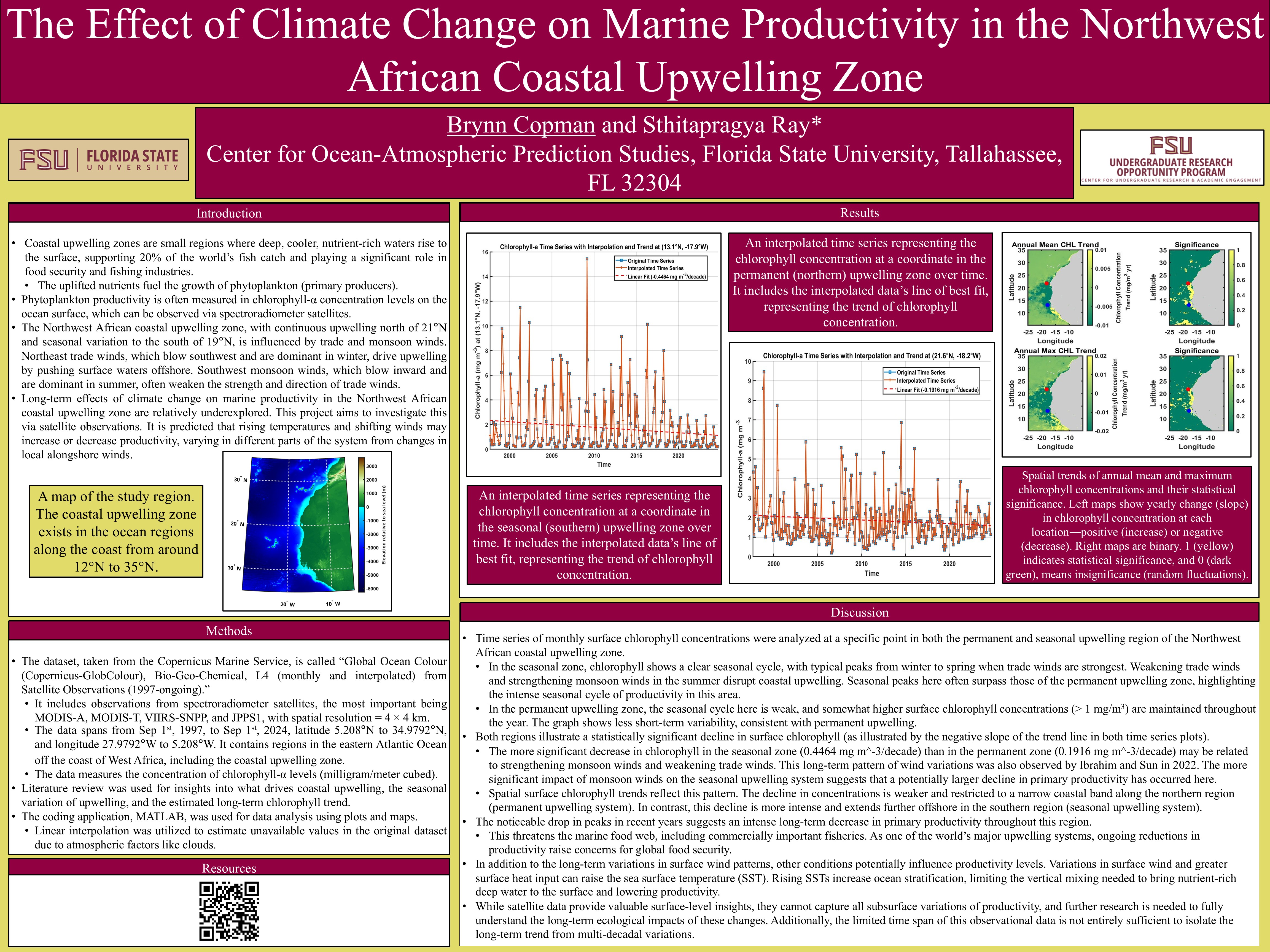Research Symposium
25th annual Undergraduate Research Symposium, April 1, 2025
Brynn Copman Poster Session 2: 10:45 am - 11:45 am/ Poster #45

BIO
Brynn Copman is a sophomore at Florida State University majoring in biochemistry. Originally from Philadelphia, Pennsylvania, she plans to pursue a career in dentistry. She hopes to expand her research experience throughout her undergraduate studies and beyond, with interests in biology and chemistry. This year, her research focused on coastal upwelling and the effects of climate change on marine productivity in upwelling zones. Outside of research, Brynn is a member of the professional chemistry fraternity, Alpha Chi Sigma, and the Panhellenic sorority, Alpha Omicron Pi. She also served as a fundraising development captain for Dance Marathon at FSU and is involved with Dental Brigades.
The Effect of Climate Change on Marine Productivity in the Northwest African Coastal Upwelling Zone
Authors: Brynn Copman, Sthitapragya RayStudent Major: Biochemistry
Mentor: Sthitapragya Ray
Mentor's Department: Center for Ocean-Atmospheric Prediction Studies Mentor's College: College of Arts and Sciences Co-Presenters:
Abstract
This project aims to investigate the long-term change in marine primary productivity in the Northwest African coastal upwelling zone—where deep nutrient-rich waters rise to the ocean surface, fueling phytoplankton growth. As primary producers, phytoplankton support marine food webs and, in turn, global and regional food security. The primary productivity related to the occurrence of phytoplankton can be measured indirectly through chlorophyll concentration levels observed by spectroradiometer satellites.
The dataset, called “Global Ocean Colour (Copernicus-GlobColour), Bio-Geo-Chemical, L4 (monthly and interpolated) from Satellite Observations (1997-ongoing),” from the Copernicus Marine Service, includes observations from multiple spectroradiometer satellites, the most important being MODIS-A, MODIS-T, VIIRS-SNPP, and JPPS1. The satellite data spans from 1997 to 2024, covering the entire globe. The present analysis uses a subset of this observation containing regions in the eastern Atlantic Ocean, off the coast of West Africa. The coding application, MATLAB, was used to analyze the data using different statistical methods by interpreting various plots. A thorough literature review was used to learn about background information and previously conducted research.
This project showed a consistent long-term decrease in marine productivity throughout the Northwest African coastal upwelling zone. This is possibly due to the weakening of upwelling-favorable winds, and other oceanographic conditions such as increased stratification, which can limit the upward transport of nutrients. The resulting decline in productivity poses significant risks to marine ecosystems and regional food security.
Keywords: upwelling, productivity, climate

